Papers
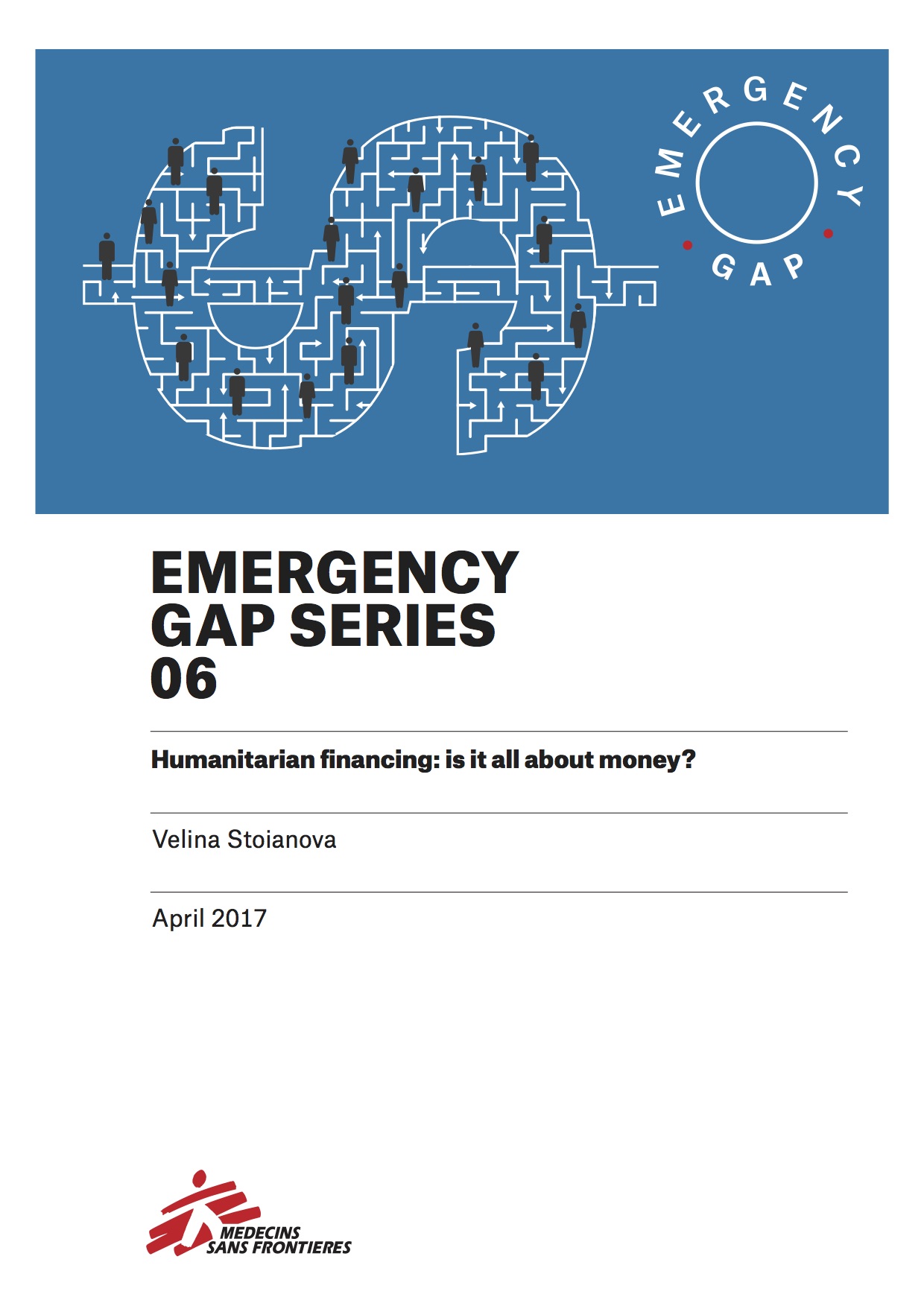
Humanitarian financing: is it all about money?
This paper expands on the structural elements of the emergency gap analysis by providing critical examination of the current setup of the humanitarian sector and its financing architecture.

Emergency gap: Insecurity – always an insurmountable obstacle?
This paper offers a reflection on the subject of risk acceptance, and some of the underlying factors that –apart from the actual security threat– influence security decision-making in the humanitarian sector.
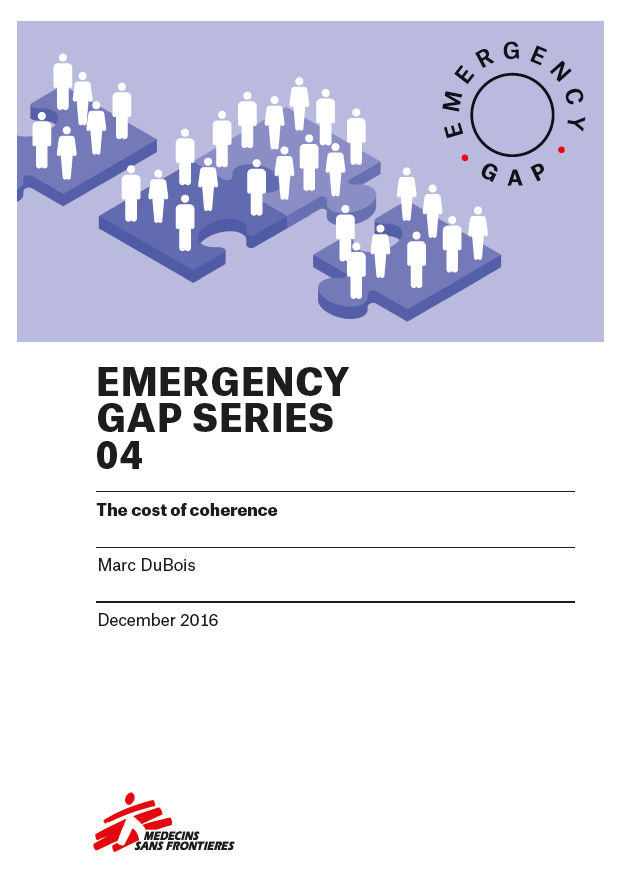
Emergency gap: The cost of coherence
The new WHS paradigm offers a vision for humanitarian action that takes coherence too far, effectively merging humanitarianism into the overarching aid project of the SDGs. The aid sector must work to strengthen complementarity across responders, while preserving the critical distinctions between humanitarian and other forms of action.
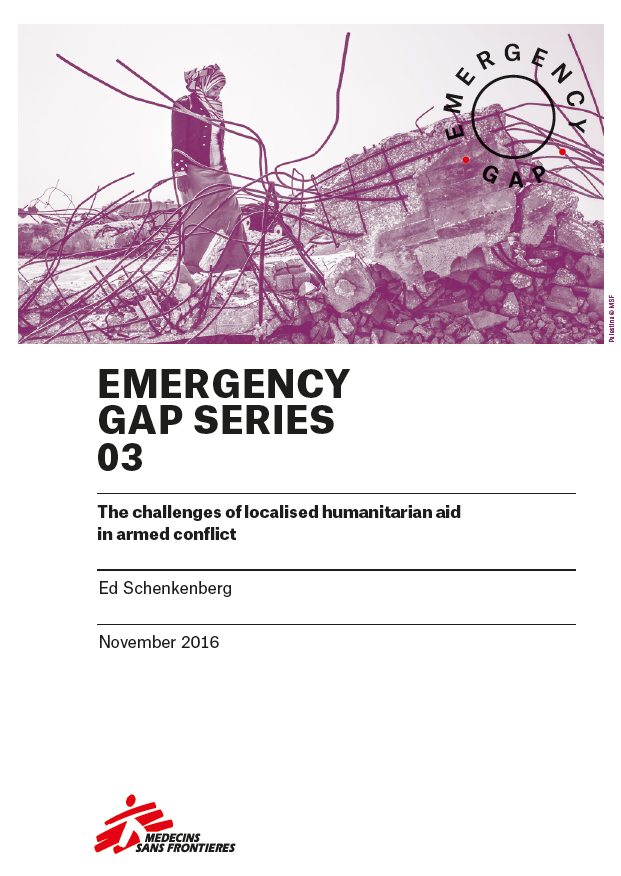
Emergency gap: The challenges of localised humanitarian aid
This paper analyses the role of national and local actors in humanitarian action based on MSF’s experiences in areas within conflict affected countries where the most urgent needs are found.
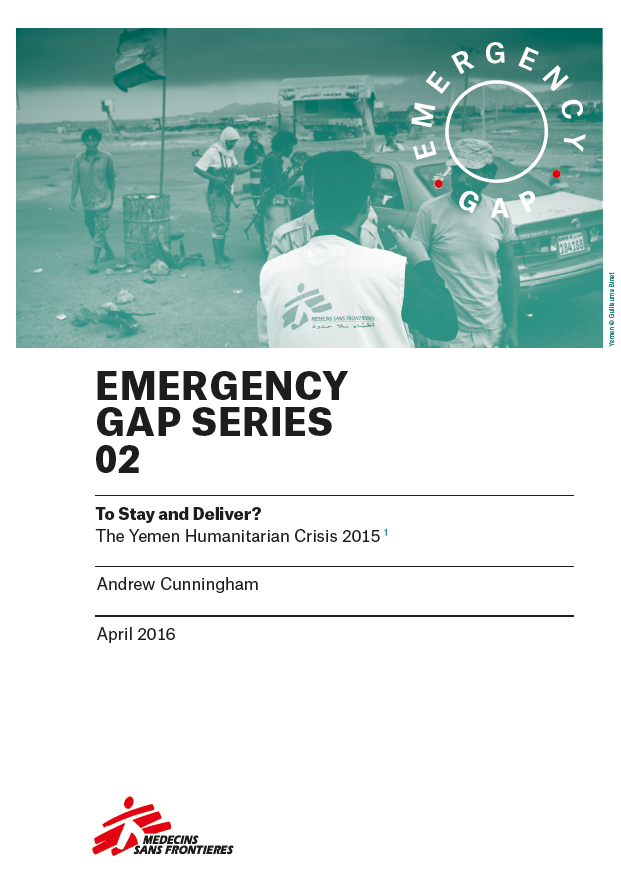
‘Stay and Deliver’ Yemen Report
The role of humanitarian aid is to assist populations in dire need, such as those suffering the consequences of conflict. But the system does not always work. In some recent humanitarian crises the humanitarian system has failed to deliver needed aid. One such failure has been the Yemen response.
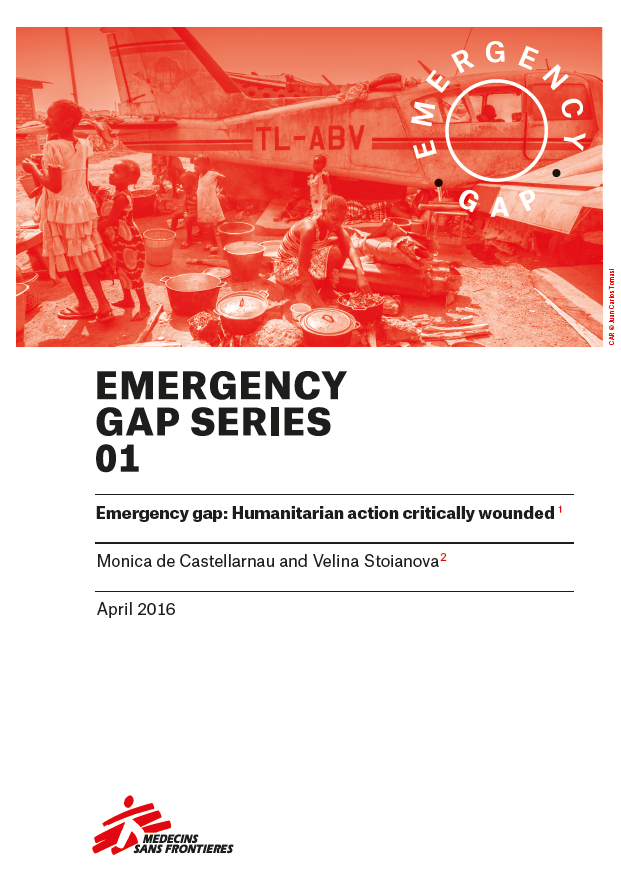
Emergency gap: Humanitarian action critically wounded
This paper offers a reflection on the subject of risk acceptance, and some of the underlying factors that –apart from the actual security threat– influence security decision-making in the humanitarian sector.
